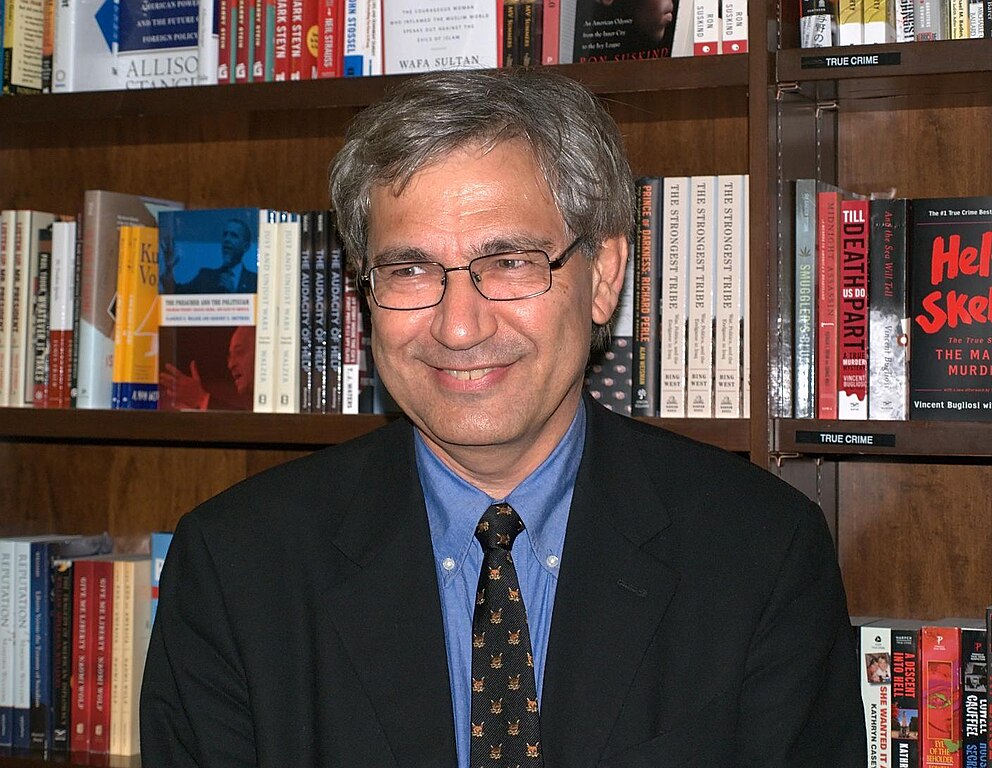
Image by David Shankbone, via Wikimedia Commons
We now know the list of Nobel Prize winners for 2006, and the award ceremony in Stockholm is not far off (December 10th). This year’s prize in literature went to Orhan Pamuk, who is almost a rock star in his home country, Turkey, but less well known outside. But that’s clearly about to change. If you’re not already familiar with Pamuk’s work, we’ve pulled together some resources for you. Born in Istanbul in 1952 (check out the Nobel bio here), Pamuk has written 10 books in Turkish — of which 7 have been translated into English — and, through complex plots and post-modern devices, his books repeatedly come back to exploring a duality — the relationship between East and West, Islamic values and Western values, religion and secularism. As John Updike puts it in a review of Snow, a particularly acclaimed work, what Pamuk delivers is an artistic look at “the tension between the secularism established by Kemal Atatürk in the nineteen-twenties and the recent rise of political Islam; … the cultural divide between a Westernized élite and the theistic masses.”
Much to his chagrin, Pamuk has gained public stature not simply because of his literary achievements, but because he has taken strong public stands against the repressive tendencies of his government and Islamic radicalism more generally. And he has paid a personal price. Notably, he was the first writer in the Muslim world to denounce the fatwa against Salman Rushdie. Also, when he declared in a 2005 interview that “Thirty thousand Kurds and a million Armenians were killed in these lands [Turkey between 1915 and 1917] and nobody dares to talk about it,” the Turkish government responded by harrassing him and then bringing him up on charges — charges it was eventually forced to drop because of international pressure. As this interview makes clear, Pamuk is not exactly what you’d call an eager dissident. Rather, you get the strong sense that it’s a moral obligation for him, the ethical cost of being famous in a country that has too few people willing to call on the government to account for its actions.
Resources:
Text
- Pamuk on “The Freedom to Write”
- Pamuk’s Short Personal Piece in The New Yorker
- A Conversation with Orhan Pamuk
- Guardian Profile
Media
- Orhan Pamuk Interview: Nobel Prize Winner 2006 (Real Player — Audio)
- Pamuk on his novel, “Snow” (Online Stream)


i have been badly looking for the e‑mail id of Pamuk. i recently visited his homeland… he has never betrayed. he just kicked up the dust of the hidden history.
subodh sarkar
Bengali poet
kolkata
india